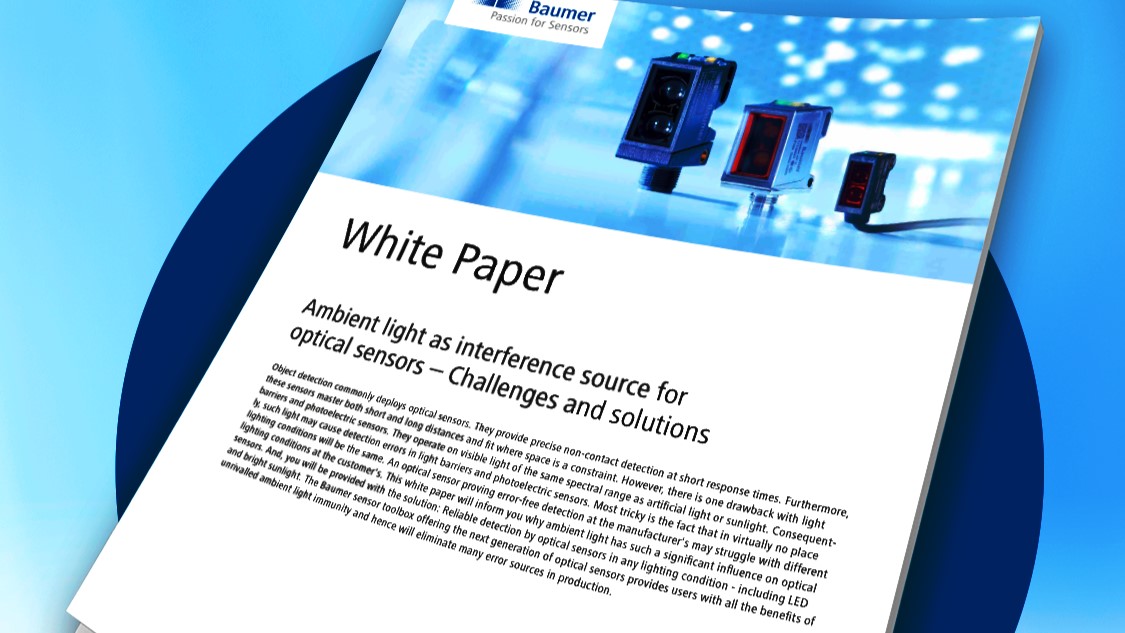In many manufacturing applications object detection commonly deploys optical sensors because when compared to other types of sensors, they provide the important benefits of precise, non-contact detection at very short response times across both long and short distances. Also, compared to other types of sensors they are extremely compact, so require minimal space.
However, there is one crucial drawback with light barriers and photoelectric sensors. This is because they operate on ambient visible light of the same spectral range as artificial light or sunlight, so are susceptible to detection errors. Furthermore, most sensing applications have hugely variable (and uncontrollable) lighting conditions and therefore reliable, error-free object detection using optical sensors, due to all these factors, can be problematic.
A recently published, free-to-download White Paper from sensing and instrumentation specialists BAUMER considers all the challenges of why ambient light has such a significant influence on the performance of optical sensors and provides some practical solutions.
As a leading expert in the design and technology of high performing sensors and sensor systems for industrial applications, Baumer are well placed to provide valuable information and advice to help engineers select the most effective sensing solutions – hence the publication of this comprehensive white paper.
Topics include; why optical sensors are very prone to ambient light and why this happens, what effect this can have on certain processes, the efforts in trouble-shooting and counter actions, overcoming these challenges, offering solutions and finally conclusions to be drawn.
Most importantly Baumer outlines the features and benefits of their latest range of optical sensors which provide reliable detection in any lighting conditions, including LED and bright sunlight.
Finally, the innovative Baumer ‘sensor toolbox’ offers the next generation of optical sensors providing users with all the benefits of unrivalled ambient light immunity and hence the ability to eliminate many error sources in production.



